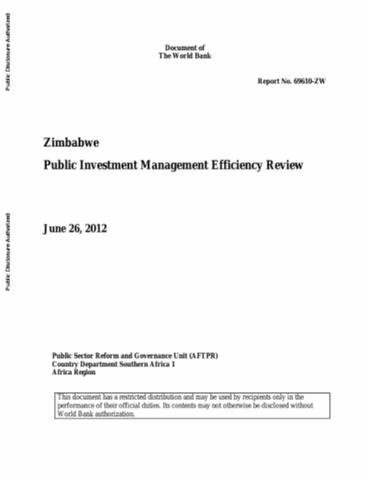The World Bank is a vital source of financial and technical assistance to developing countries around the world. We are not a bank in the ordinary sense but a unique partnership to reduce poverty and support development. The World Bank Group has two ambitious goals: End extreme poverty within a generation and boost shared prosperity.
- To end extreme poverty, the Bank's goal is to decrease the percentage of people living on less than $1.25 a day to no more than 3% by 2030.
- To promote shared prosperity, the goal is to promote income growth of the bottom 40% of the population in each country.
The World Bank Group comprises five institutions managed by their member countries.
The World Bank Group and Land: Working to protect the rights of existing land users and to help secure benefits for smallholder farmers
The World Bank (IBRD and IDA) interacts primarily with governments to increase agricultural productivity, strengthen land tenure policies and improve land governance. More than 90% of the World Bank’s agriculture portfolio focuses on the productivity and access to markets by small holder farmers. Ten percent of our projects focus on the governance of land tenure.
Similarly, investments by the International Finance Corporation (IFC), the World Bank Group’s private sector arm, including those in larger scale enterprises, overwhelmingly support smallholder farmers through improved access to finance, inputs and markets, and as direct suppliers. IFC invests in environmentally and socially sustainable private enterprises in all parts of the value chain (inputs such as irrigation and fertilizers, primary production, processing, transport and storage, traders, and risk management facilities including weather/crop insurance, warehouse financing, etc
For more information, visit the World Bank Group and land and food security (https://www.worldbank.org/en/topic/agriculture/brief/land-and-food-security1
Resources
Displaying 3421 - 3425 of 4907Zimbabwe Public Investment Management Efficiency Review
The Public Investment Management (PIM) efficiency review is intended to support the Government of Zimbabwe, and in particular the Ministry of Finance, in its efforts to strengthen the efficiency of the public investment system, with the goal of improving the creation, operation and maintenance of public sector capital assets that support service delivery and economic growth. The problems of public investment management are not merely financial but systemic. Budget execution deficit remains a major bottleneck.
Incomplete Contracts and Investment : A Study of Land Tenancy in Pakistan
When contracts are incomplete, relationship-specific investments may be underprovided due to the threat of opportunistic expropriation or holdup. The authors find evidence of such underinvestment on tenanted land in rural Pakistan. Using data from households cultivating multiple plots under different tenure arrangements, they show that land-specific investment is lower on leased plots. This result is robust to the possible effects of asymmetric information in the leasing market. Greater tenure security also increases land-specific investment on leased plots.
Cultivate or Rent Out? Land Security in Rural Thailand
In the 1980s the Thai government tried to legalize squatters by issuing special titles that restricted the sale and rental of the land. Using data from 2,874 farming households collected in 1997, the author finds that in places where these government titles where issued, leased plots are more likely to be titled than those that are self-cultivated. For these areas, he uses a model to estimate a 6 percent risk premium in the rental rate for untitled plots.
Legal Knowledge and Economic Development : The Case of Land Rights in Uganda
Mixed evidence on the impact of formal title in much of Africa is often used to question the relevance of dealing with land policy issues in this continent. The authors use data from Uganda to assess the impact of a disaggregated set of rights on investment, productivity, and land values, and to test the hypothesis that individuals' lack of knowledge of the new law reduces their tenure security. Results point toward strong and positive effects of greater tenure security and transferability.
China Land Policy Reform for Sustainable Economic and Social Development : An Integrated Framework for Action
China has undergone a profound economic and social transformation as it moves from a centrally-planned to a market-oriented economy. Land issues are implicated in this ongoing transformation in numerous important ways - as key factors in China's quest for economic growth, national food security and social stability; as important influences in the rapid growth of China's cities as well as the future of its agriculture; and as central features in local government finance and in the growth and stability of the financial and banking sector.







